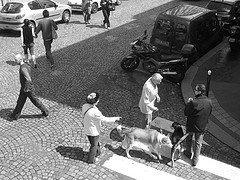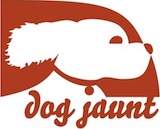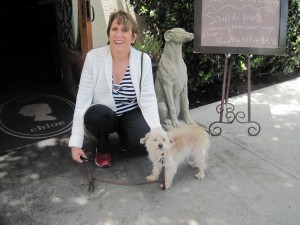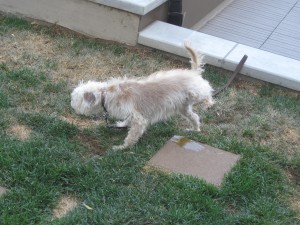
Photo by fachxx00
As you know, we’re taking Chloe to Paris this fall. It occurred to me recently, as I went on my morning walk with her around the neighborhood park, that we’ll meet other dog owners in Paris. How are we going to have The Conversation with them, given that we don’t know a scrap of French dog vocabulary?
You know what I mean by The Conversation — anyone who walks their dog and meets other dog owners does. It goes something like this:
Hello! Is your dog friendly?
She sure is — how about yours?
[The dogs meet.]
May I pat her?
Please do — I’ll try to keep her from jumping on you. Chloe, SIT.
What a cutie, her ears are so soft! What kind of dog is she?
She’s a Cavalier King Charles Spaniel. And yours?
[They answer.]
What a cutie, his/her ears are so soft!
How old is she?
Oh, about a year and a half — she’s full-grown, but she’s still pretty foolish.
They stay puppies for a long time, huh?
They sure do.
Would it be okay if I gave her a treat?
Absolutely — she’d love it. Thanks so much! Good-bye!
There are many variations, but this is the basic conversation I have, oh, about five times a day. I can get by in French, but none of my classes included phrases like these. Yikes! So I wrote to my friend Melanie, who’s not only French but is also one of those people who learn languages with ease and grace (her English is as good as mine; she speaks Portuguese and Japanese, no doubt with the same facility; and she’s currently learning Swedish for fun). If she weren’t such a lovely person, I could really dislike her. I sent her The Conversation, and here’s what she sent back.
“Is your dog friendly” was actually the trickiest part: I asked a colleague who has experience owning and walking dogs for help. I am still slightly concerned that “votre chien” might seem a bit aggressive (accusatory) when associated with dog friendliness in a sentence, so I would use “il” instead. Of course “il” could also be a “elle”, in which case the dog’s sex will be hinted in the answer: “il est gentil?”, “oui, elle est gentille”. Gender neutrality has yet to reach us and masculine is still widely used for neutral.
Hello! Is your dog friendly?
Bonjour. [So far so good…] Il est gentil avec les autres chiens? [or] Votre chien s’entend bien avec les autres chiens?
She sure is — how about yours?
Bien sûr. [or] Oui, elle est gentille. Et votre chien?
[The dogs meet.]
May I pat her?
Est-ce que je peux la caresser?
Please do — I’ll try to keep her from jumping on you. Chloe, SIT.
Bien sûr – je vais essayer de faire en sorte qu’elle ne vous saute pas dessus. Chloé, ASSISE. [For the sake of efficiency, you might want to keep to SIT here.]
What a cutie, her ears are so soft!
Comme elle est mignonne. Ses oreilles sont toutes douces!
What kind of dog is she?
C’est quelle race de chien?
She’s a Cavalier King Charles Spaniel. And yours?
C’est un épagneul Cavalier King Charles. Et le [“la”, if previously identified as a she] votre?
[They answer.]
What a cutie, his/her ears are so soft!
Comme il/elle est mignon/mignonne. Ses oreilles sont toutes douces!
How old is she?
Elle a quel âge?
Oh, about a year and a half — she’s full-grown, but she’s still pretty foolish.
Un an et demi, à peu près. Elle a atteint sa taille adulte… mais elle fait encore pas mal de bêtises!
They stay puppies for a long time, huh?
Ils restent jeunes longtemps, hein?
They sure do.
Oui, tout à fait.
Would it be okay if I gave her a treat?
Je peux lui donner une friandise? [You might want to be more specific about what kind of treat you have in mind, e.g, “un biscuit”]
Absolutely — she’d love it. Thanks so much! Good-bye!
Bien sûr, ça va lui faire plaisir! Merci beaucoup! Au revoir!
Thank goodness for Melanie. Other helpful phrases:
Little doggie
Petit toutou
Where may I walk my dog?
Où puis-je promener mon chien?
Can I give you one of my treats to give her? She’s allergic to corn/wheat.
Est-ce que je peux vous donner l’un de mes biscuits pour que vous le lui donniez? Elle est allergique au maïs/au blé.

















